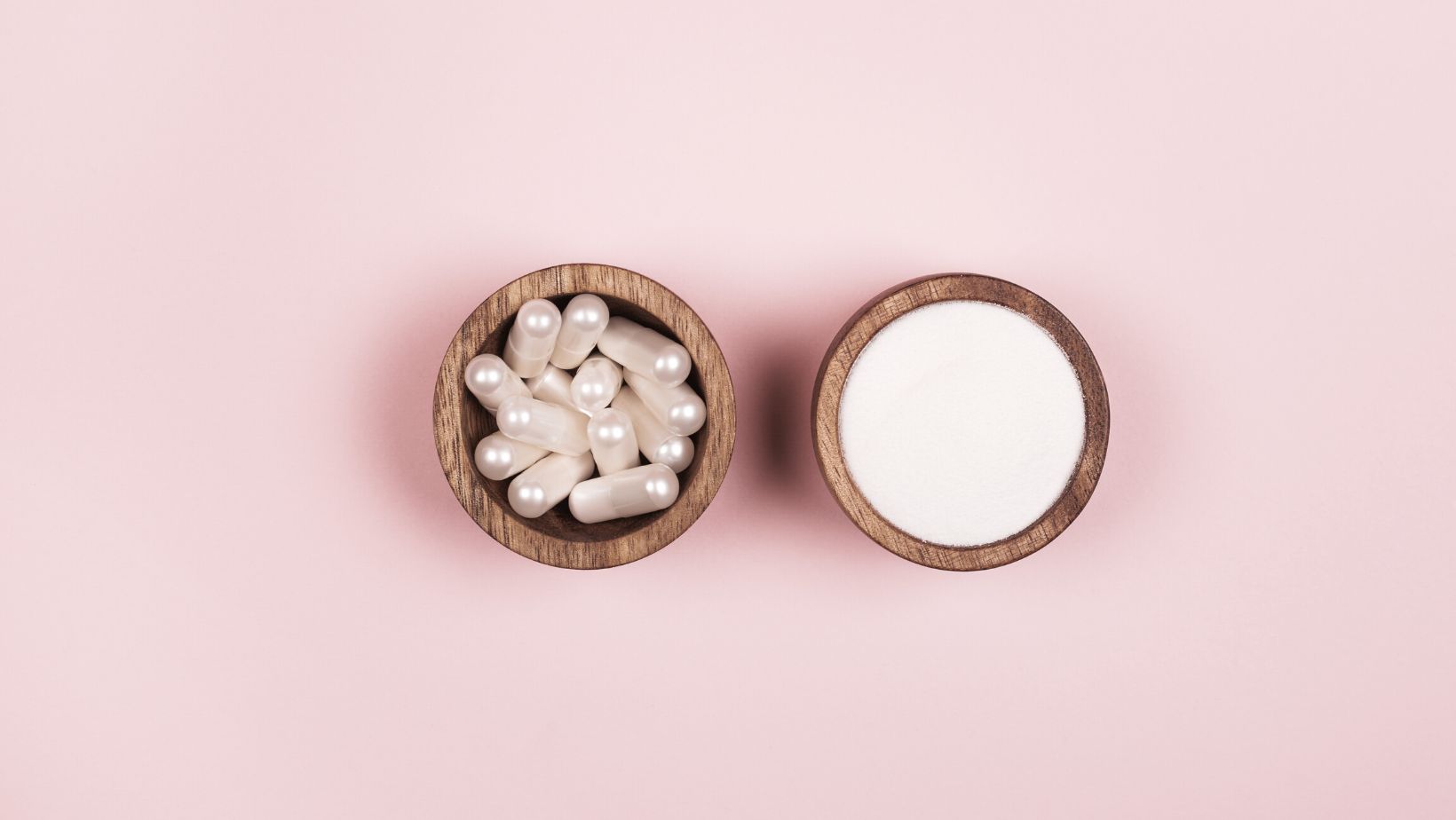
WHICH COLLAGEN TYPE SHOULD YOU TAKE?
You have probably heard about the benefits of collagen and are interested in adding it to your diet. But which type should you take? There are many different types of collagen, each with its unique benefits.
As you get older, your body's natural collagen production lowers. This decline can lead to sensitive and wrinkled skin, joint pain, bone problems and muscle weakness.
In this blog post, we will discuss the differences between the three main types of collagen—Type I, II and III—and will also give you a breakdown of the benefits of each kind. So which collagen should you take? Read on to find out!

WHAT IS COLLAGEN?
Collagen is a protein that we all produce naturally. It is the most abundant protein in the human body and makes up about 30% of the total protein content. Collagen consists of long chains of amino acids, which are the building blocks of proteins. Collagen helps form connective tissue, such as tendons and ligaments. It also helps to give structure to the skin, bones, and joints.
As we age, our bodies produce less collagen. This natural decline leads to a decrease in the strength and elasticity of the skin, more wrinkles, joint problems and pains, and muscular decay. Collagen supplements can help offset this decline by providing the body with the amino acids needed to maintain more collagen.
There are three main types of collagen, each with its own set of benefits:
- Type I Collagen: This is the most abundant type of collagen in the human body and the strongest kind. It is found in tendons, skin, ligaments, and bones. Type I collagen provides structure and support to the body by keeping connective tissue (tendon, skin, muscles, ligaments) resistant and supple. Minimise fine lines and wrinkles and improves skin elasticity and hydration. Very present in bovine collagen and marine collagen.
- Type II Collagen: This type of collagen is found in cartilage and targets joint health. Known to prevent knee degeneration, especially osteoarthritis; however, more studies are needed. Also good for the eyes. Abundant in bone broth and cartilage.
- Type III Collagen: Similar to Type I Collagen but less abundant. This collagen type is found in the skin, muscles, and blood vessels—a key player in wound healing.
WHICH COLLAGEN SHOULD YOU TAKE?
The answer depends on your specific needs but also on the bioavailability —how much you absorb—of the supplements available on the market. Type I is most famous for its skin and joint benefits, which can be found abundantly in bovine collagen peptides. Make sure to use a clean brand without additives and insist on grass-fed bovine collagen peptides to avoid unethical practices. Type II collagen is also beneficial for joint health—specifically cartilage— but has been less researched scientifically than its Type I counterpart. Moreover, if you are interested in supporting your skin's health and hydration, you should take a supplement containing Type I and Type III collagen. You can also find supplements containing all three types of collagen, but the respective amount is often not precisely stated or verified. Whichever type you choose, be sure to look for a quality product without additives, backed by scientific research and third-party tested.
WHAT ARE COLLAGEN PEPTIDES?
Collagen peptides are short chains of amino acids that are derived from collagen. They are a more bioavailable form of collagen and can be easily absorbed by the body. Collagen peptides have a variety of benefits, including joint health, skin health, and gut health. They can also help to improve energy levels and cognitive function.
When choosing a collagen supplement, it is important to look for hydrolysed collagen peptides. This will ensure that your body is able to absorb and utilise the collagen for maximum benefit.
Read more about the importance of bioavailability.

HOW DO COLLAGEN PEPTIDES WORK?
Collagen peptides work by providing the body with the amino acids it needs to produce collagen. When taken in supplement form, they are easily absorbed by the gut and transported to the tissue in the body. Once in the tissue, they can help improve each tissue's structure and function
If you are interested in taking a collagen supplement, FLEXIBLE by LEMAlab™ has been specifically created to help support flexibility and reduce joint inflammation. It is made of Hydrolyzed Bovine Collagen Peptides extracted from grass-fed, pasture-raised animals. Its complementary ingredients—MSM (methylsulfonylmethane), Bromelain 1200 GDU, and Glucosamine Sulphate—also target joint inflammation and recovery.
HOW TO TAKE COLLAGEN PEPTIDES?
Collagen peptides can be taken in powder or capsule form. They can be added to food or beverages or taken on their own. Tablets usually do not contain enough grams of collagen to make a difference. Research suggests 10g of daily consumption is the aim, and small tablets often only provide around 1 gram, so you must ingest 8 to 12 daily.
CONCLUSION
Ageing is a non-negotiable part of life, and it can be a beautiful process. So let's delay the body's decay and prolong healthspan and body vitality by keeping our collagen storage high and joints healthy.

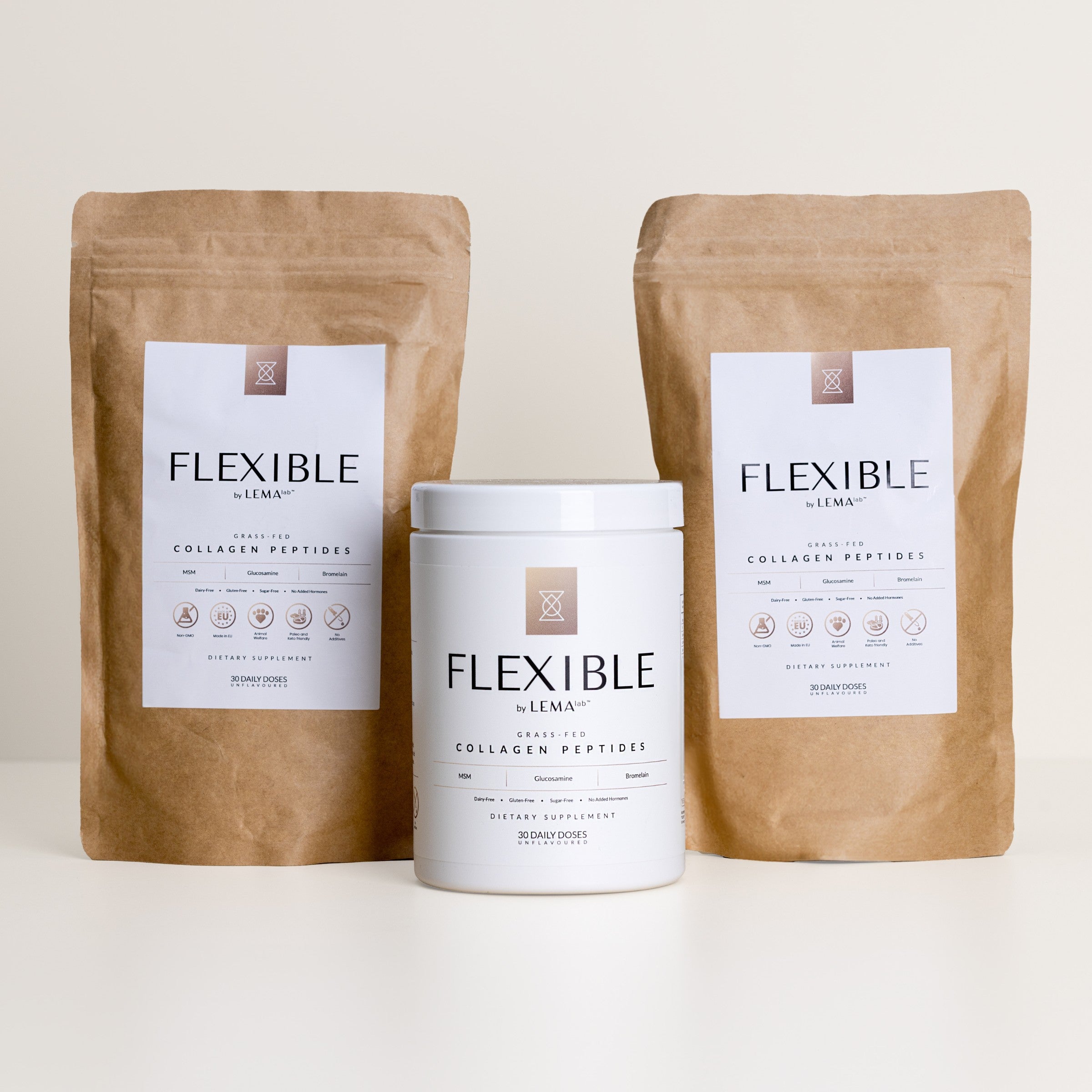
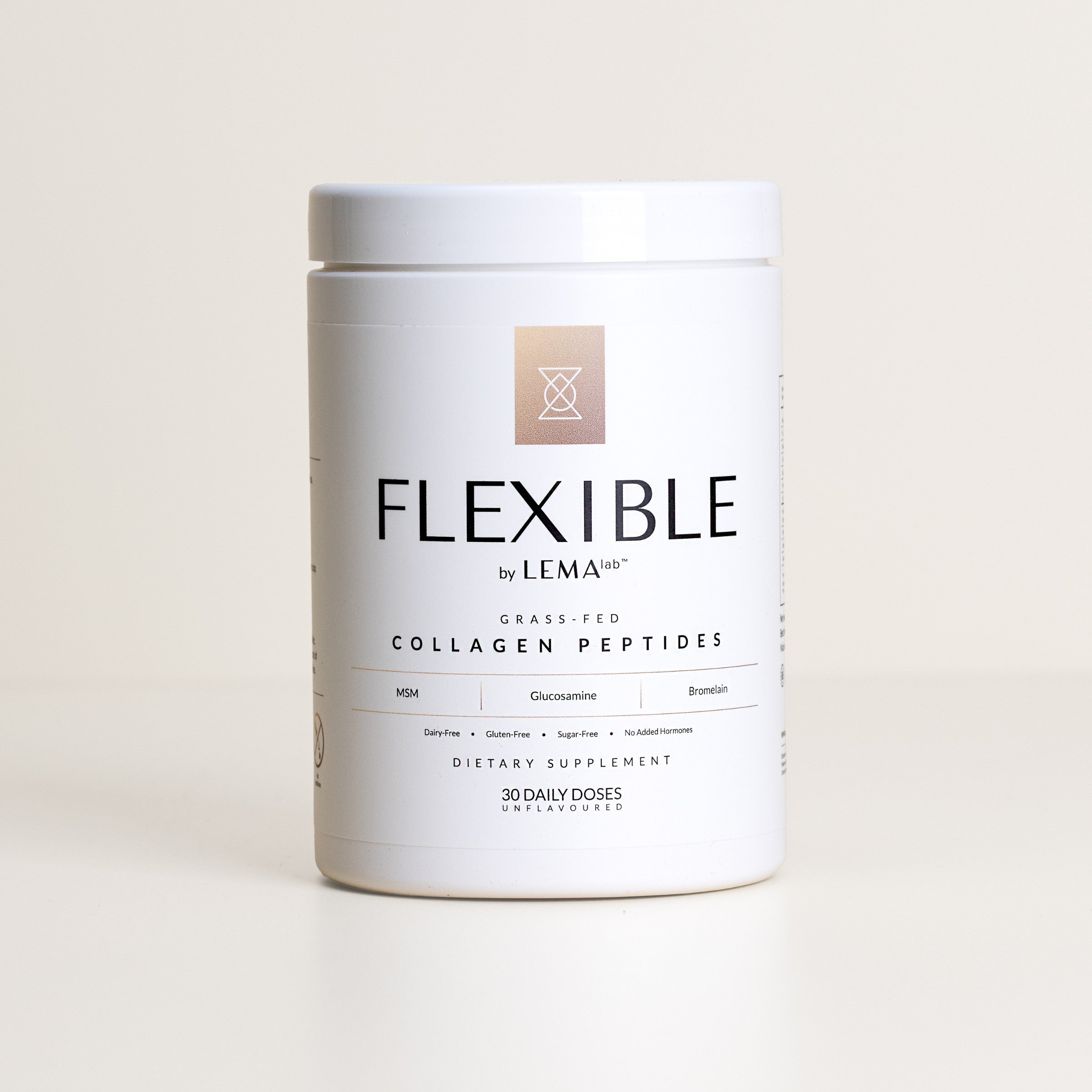
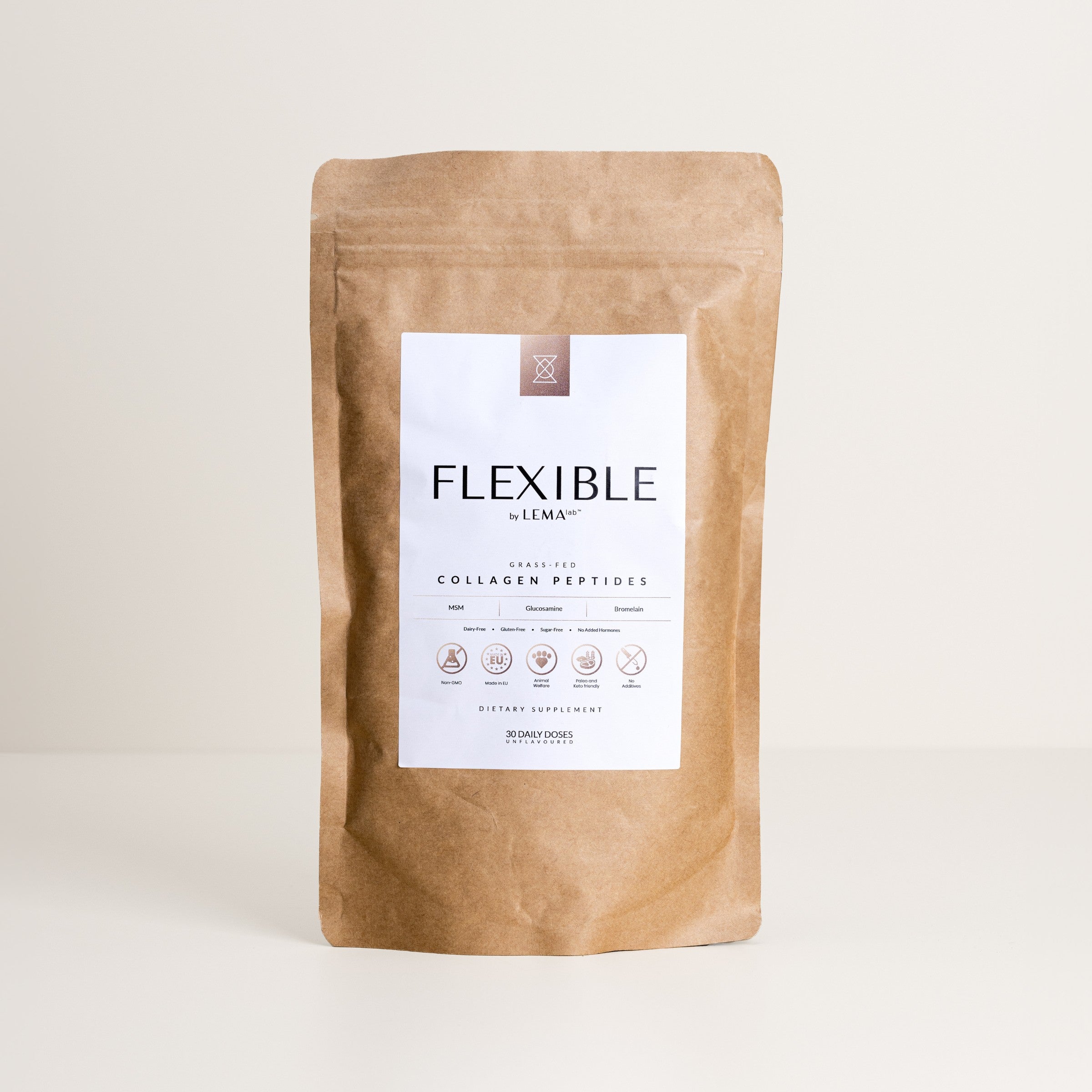


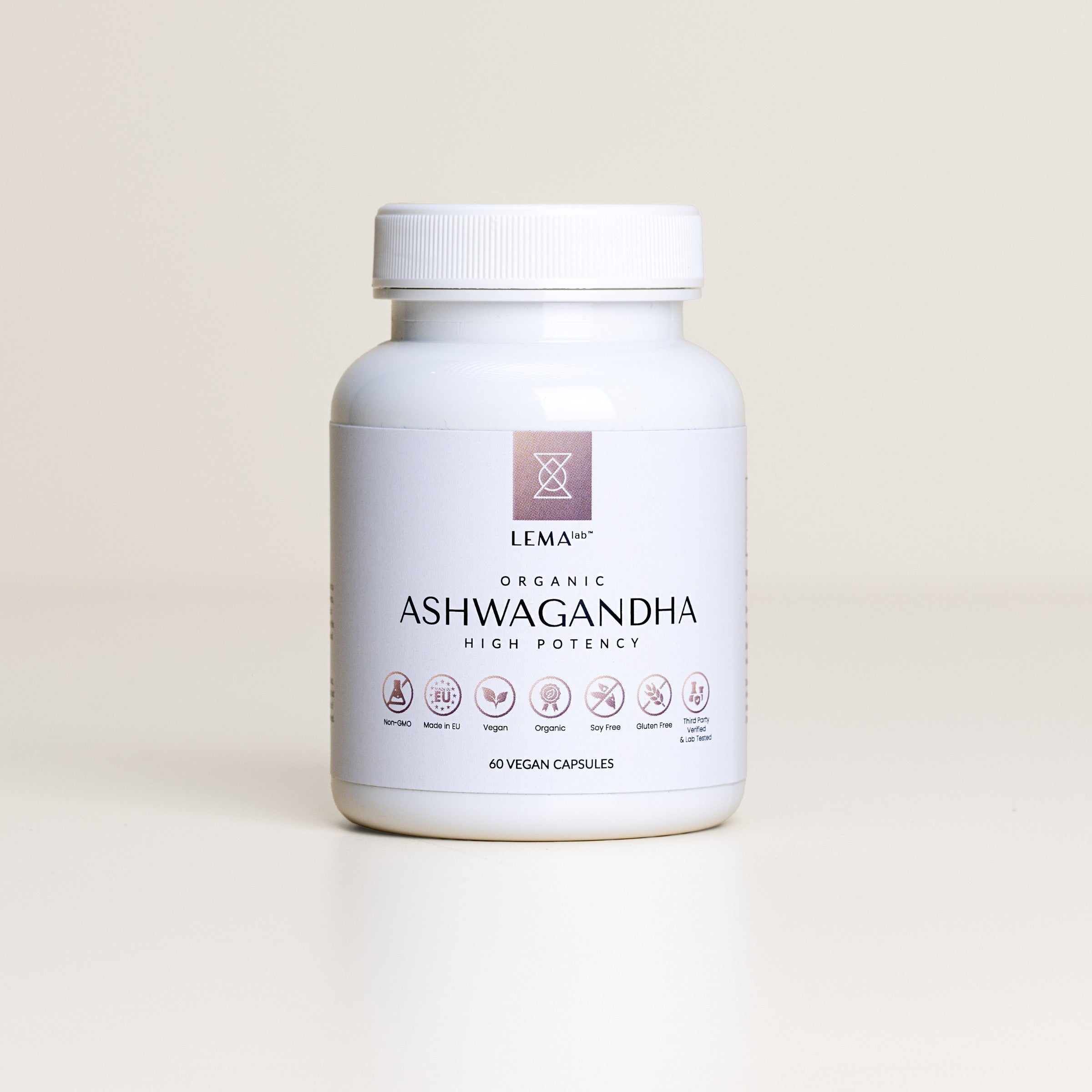
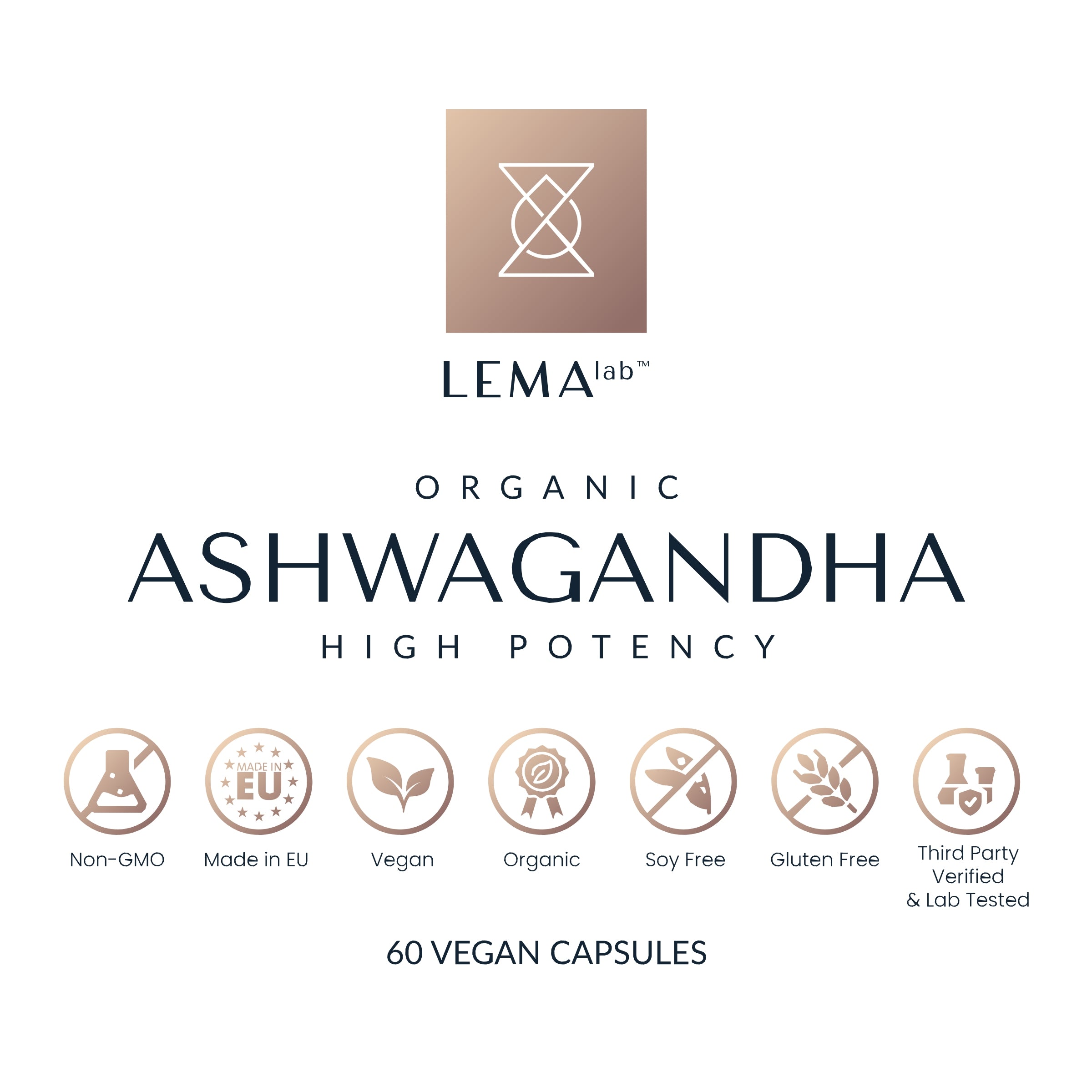
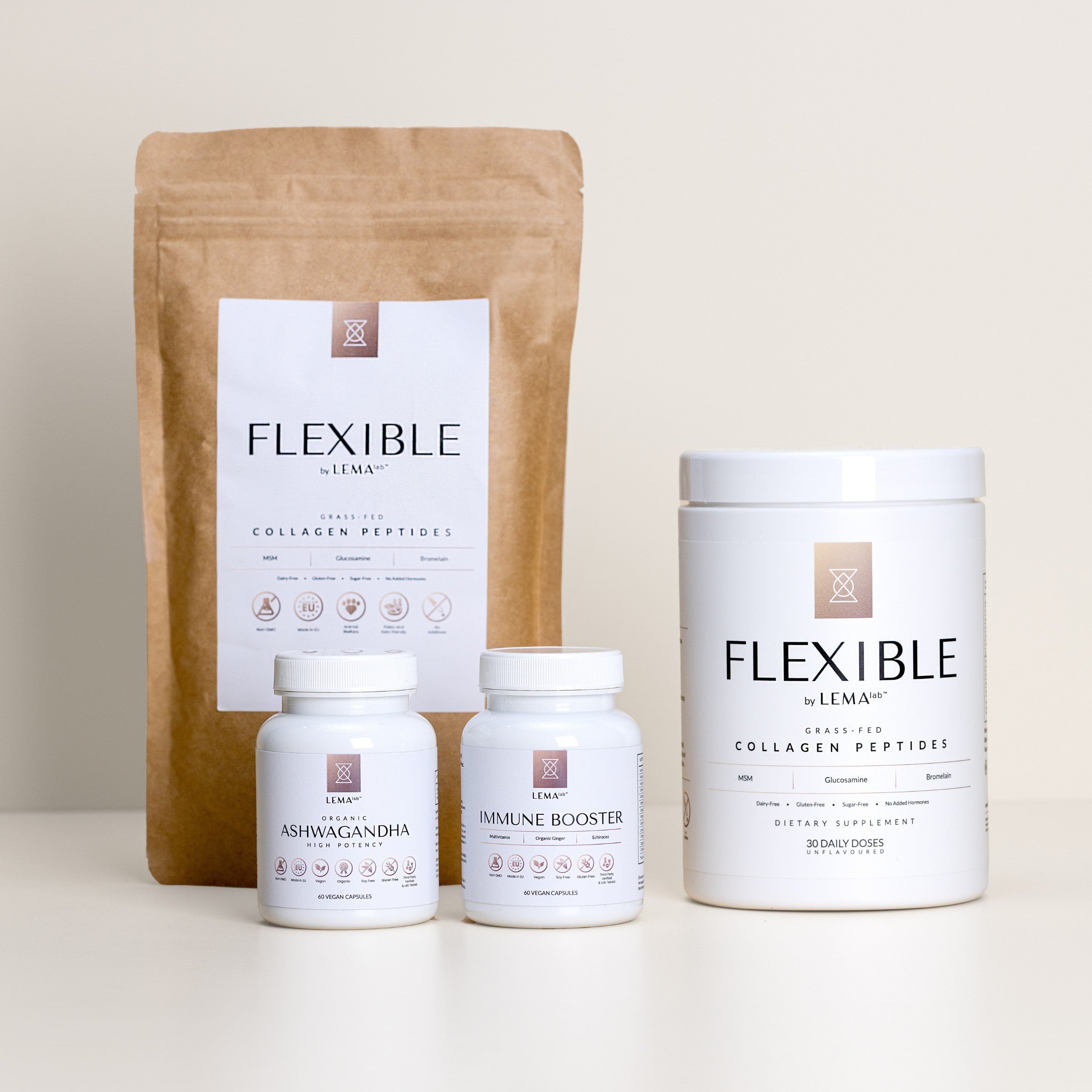

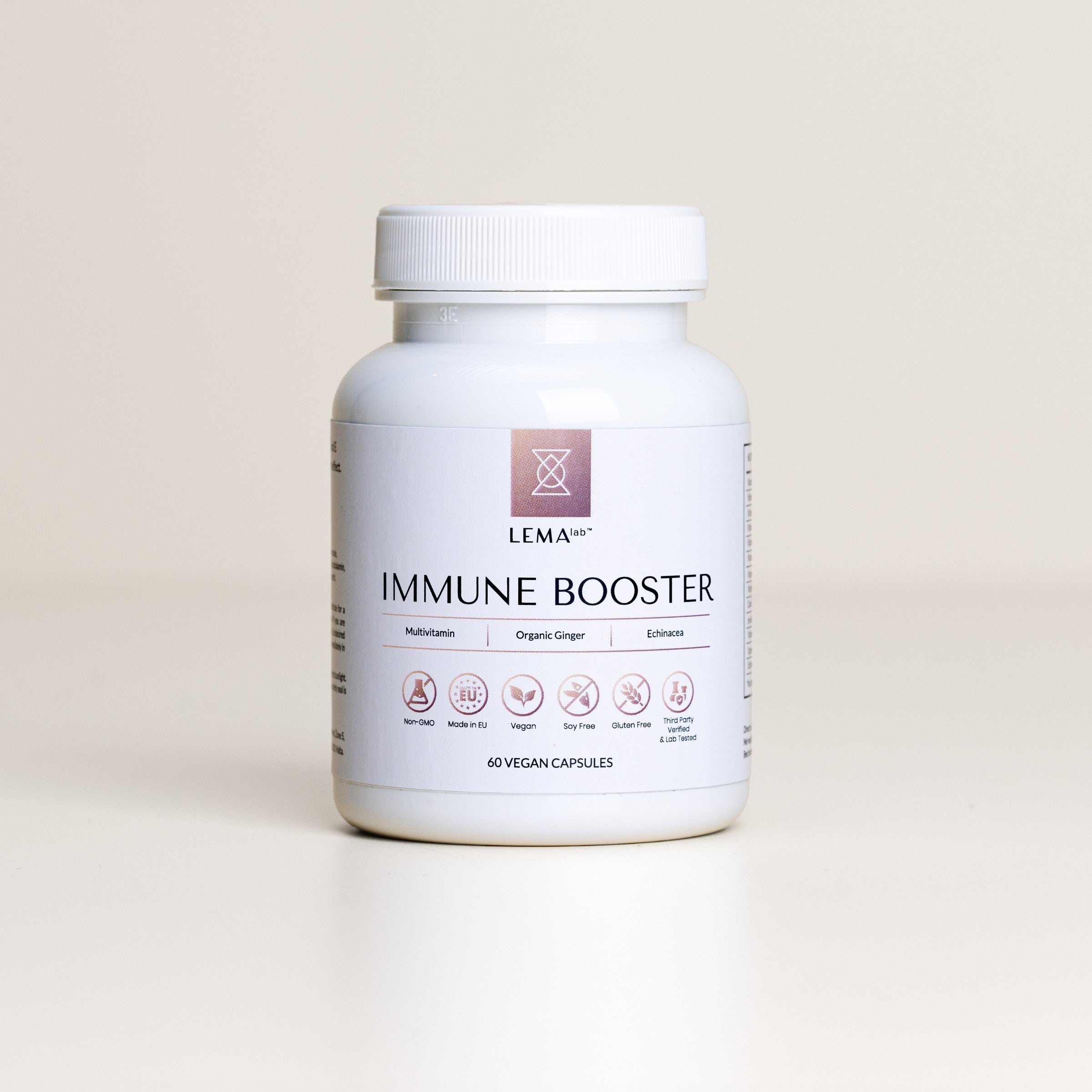
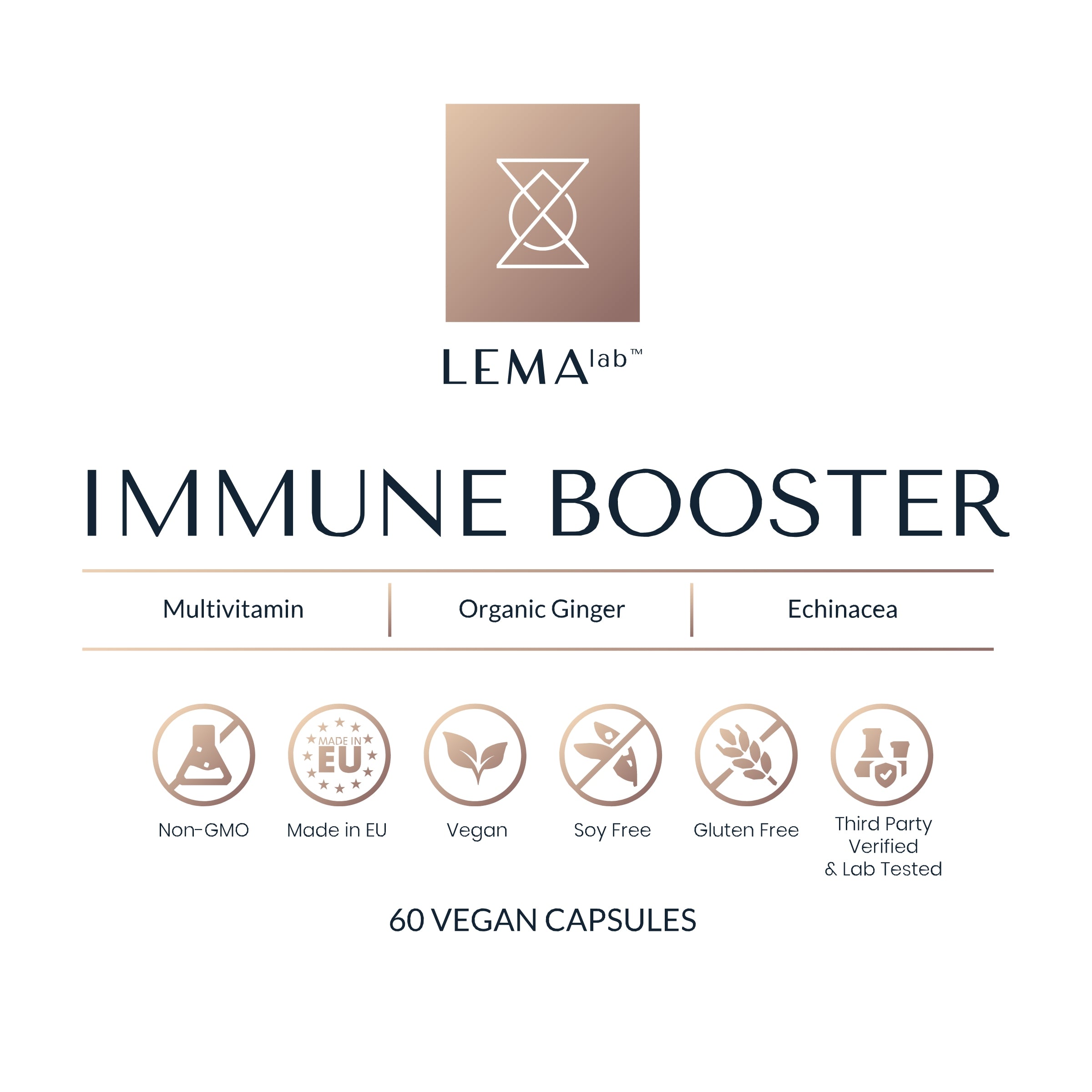
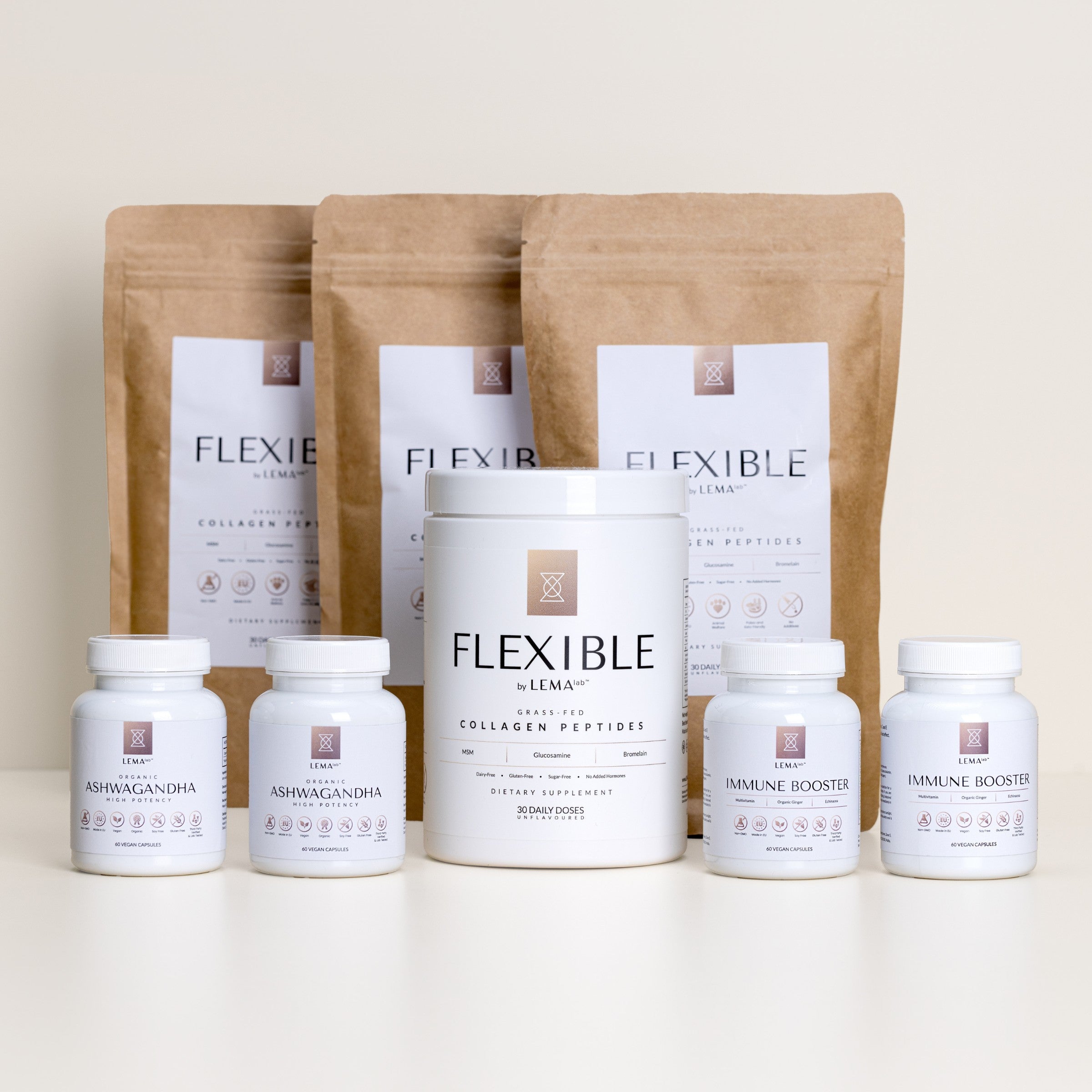
Leave a comment
This site is protected by hCaptcha and the hCaptcha Privacy Policy and Terms of Service apply.